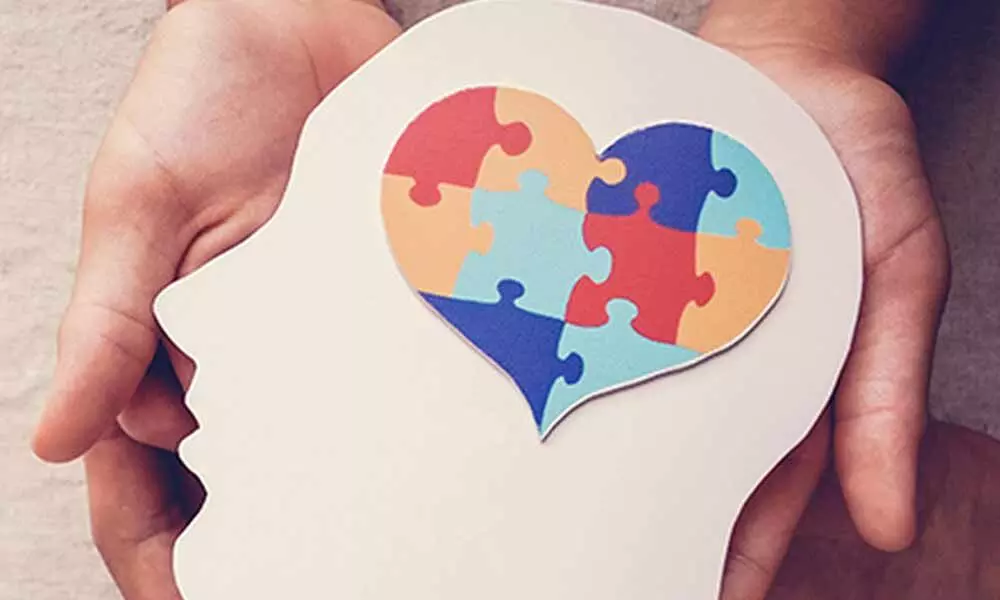National tele mental health programme can be a game-changer for India
As the pandemic has accentuated mental health problems for people of all ages, the program is aimed to better the access to quality mental health counselling and care services
image for illustrative purpose

According to WHO estimates, about 7.5% Indians suffer from some mental disorder and it had predicted that by 2020, roughly 20% of India will suffer from mental illnesses. This number would have been exacerbated by the pandemic, owing to the lacunae in the healthcare infrastructure in the country. It is a known fact that there is a dearth of psychiatrists in India, as we have one psychiatrist for 3,500 patients
The ongoing coronavirus pandemic has already taken a toll of about 60 lakh precious lives in the world, and is still counting. In India too, more than 5.14 lakh people have lost their lives so far and the pandemic, which reared its ugly head almost two years back, just refuses to subside as it keeps on emerging periodically. Apart from the huge human toll, the pandemic has also wreaked unimaginable havoc on economy and other aspects of human life. But, the biggest of all impact of the pandemic was on mental well-being of the people across the globe, and India was no exception. Because of the pandemic, a large percentage of Indians of all ages, all social and economic classes have been suffering from loneliness, stress, anxiety, depression and grief related psychological problems. In fact, even before the Covid-19 pandemic began in March 2020, the world was already immersed in a deep mental health crisis. Despite the fact that at least a quarter of the population was destined to suffer from mental illness throughout their lives, the health authorities world over, including India, did not take measures commensurate with the seriousness of the matter. And the situation generated by the new coronavirus only made things worse.
Under this backdrop, the launch of the 'national tele mental health programme' by the Indian government is a step in right direction. Recognising the impact of the Covid-19 pandemic on not just one's physical but also psychological and emotional health, Union Finance Minister Nirmala Sitharaman, in her Budget speech, announced the launch of 'national tele mental health programme' to address this grave issue. As the pandemic has accentuated mental health problems in people of all ages, the program is aimed to better the access to quality mental health counselling and care services. And quite aptly, the National Institute for Mental Health and Neurosciences (NIMHANS), Bengaluru, has been made the nodal centre and the International Institute of Information technology (IIIT), Bangalore has been roped in for providing technological support for this pan-India programme. The national tele mental health programme encompasses a network of 23 tele-mental health Centres of Excellence (CoEs), with NIMHANS as the nodal centre. The selection of NIMHANS as the nodal centre is also good move by the government as NIMHANS had recognized over 6 lakh tele mental health consultations during the ongoing Covid-19 pandemic.
The Indian government's move in this regard is a welcome one as according to The Lancet, the world's oldest and best-known general medical journal, the amount of rising depression and anxiety cases was up by 40 per cent each. Obviously, there is a yawning gap between those who need mental healthcare and those who can access it in India. According to WHO estimates, about 7.5 per cent Indians suffer from some mental disorder and it had predicted that by 2020, roughly 20 per cent of India will suffer from mental illnesses. This number would have been exacerbated by the pandemic, owing to the lacunae in the healthcare infrastructure in the country. It is a known fact that there is a dearth of psychiatrists in India, as we have one psychiatrist for 3,500 patients. So, seeing everyone in person was a big challenge. In this background, tele-consultation will prove to be a big boon. Besides, patients who are afraid of stigmatization, can consult online from anywhere, and patients can definitely talk more on tele-consultation. Of course, the Indian government's decision to set up mental health tele-consultation is a welcome move as there is a great opportunity for using mobile phones as a tool to reach out to individuals who are in need of a mental health consultation.
It is gratifying to note that the Indian government has recognised the toll the ongoing Covid-19 pandemic has been taking on the mental health of a large section of the population and addressed it by announcing the rollout of a national tele-mental health programme. The pandemic has accentuated mental health problems in people of all ages. To address this issue the launch of the national tele mental health program is a step in the right direction. The program will prove to be a great initiative to support the mental well-being of individuals, families, and society as a whole by enhancing the accessibility to the service. This should be a mammoth progressive step towards normalizing the conversation around the mental health topic and removing the stigma associated with it, in the long run. Of course, we are on the right path to create a mental and emotionally healthy society.
(The author is freelance journalist with varied experience in different fields)

